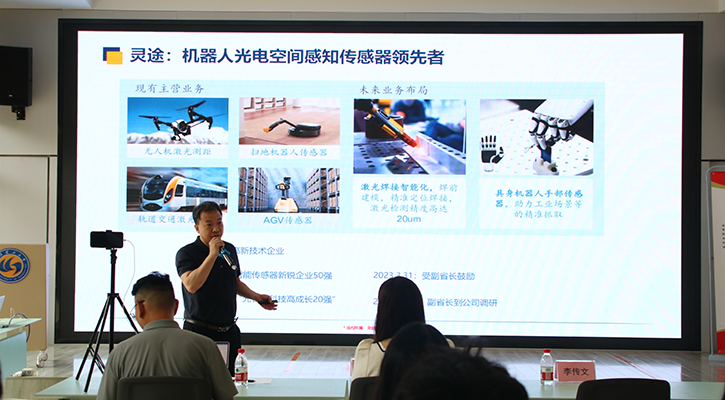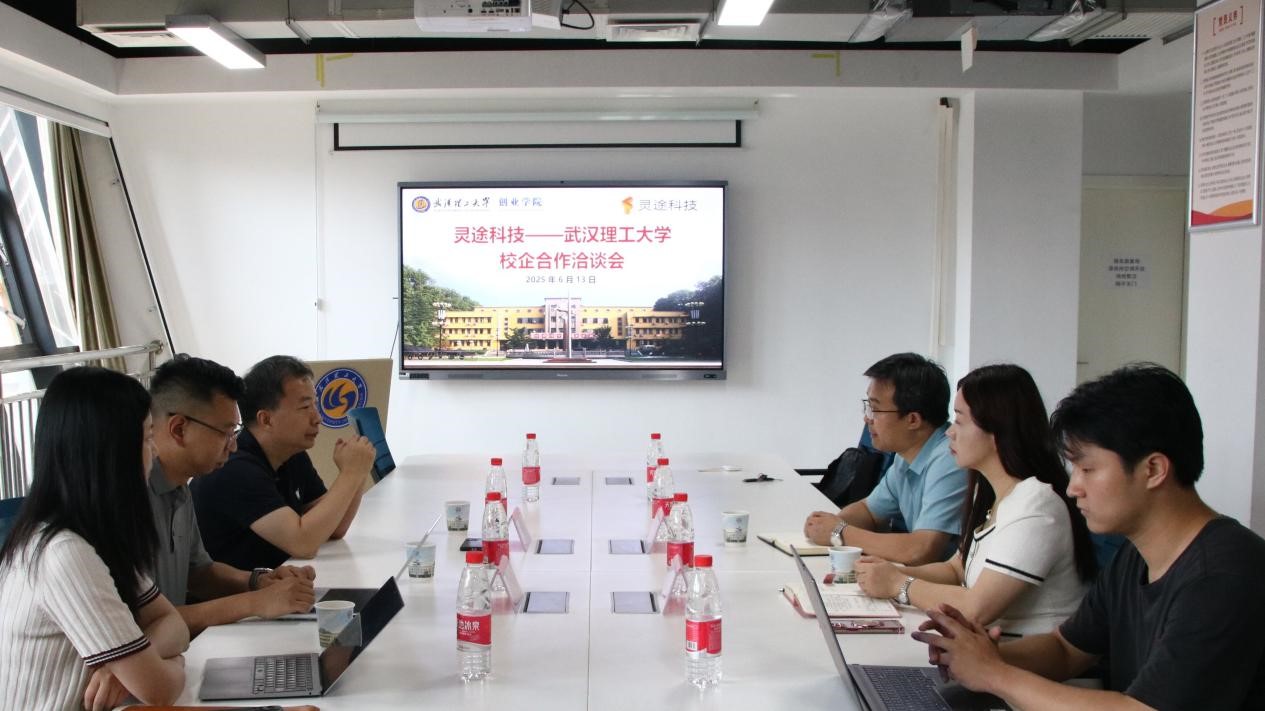On June 13, 2025, the Industry-University-Research Cooperation Conference between the School of Entrepreneurship of Wuhan University of Technology and Wuhan Leantool Sensing Technology Co., Ltd. Kicked off in the first-floor hall of the Innovation Park. The event, themed “Dream Building, Dream Chasing, Dream Realizing,” aimed to build a cooperation bridge for technology alignment and talent cultivation. Deputy Dean Peng Huatao of the School of Entrepreneurship, Professor Liu Qin of the School of Entrepreneurship, Chairman Li Chuanwen of Leantool Technology, and representatives from both sides attended the event.
Firstly, Deputy Dean Peng Huatao emphasized in his opening speech that the School of Entrepreneurship, relying on the Ministry of Education’s 240 million yuan incubation platform and the “interdisciplinary + practical incubation” education system, is committed to creating a full-chain ecosystem of “project research and development - achievement transformation - enterprise incubation.” He pointed out that school-enterprise cooperation is the key path to solving the disconnection between “technology R&D and market demand.” The School looks forward to establishing a “resource sharing and complementary advantages” cooperation model with Leantool Technology in fields such as robot sensing and optoelectronic technology. In particular, it is expected to drive students’ innovation practice through enterprise projects, allowing scientific research outcomes to truly “move out of the laboratory and into the production line.”
Then, Chairman Li Chuanwen shared the entrepreneurial journey of Leantool Technology from core technology research and development to commercialization under the theme of “Hardships and Opportunities: Refinement and Transition on the Entrepreneurial Journey.” As a master’s graduate from Huazhong University of Science and Technology and a former technical backbone in the optoelectronic industry, he founded Leantool Sensing in 2017, focusing on robot spatial perception technology (including household cleaning robots, drone sensors, etc.). The company has been certified as a high-tech enterprise and selected as one of the “Top 20 High-Growth High-Growth Companies in Optics Valley.” He proposed a five-stage theory of enterprise development (family, tribe, village, city, country), emphasizing the differences in core tasks at each stage. He suggested that entrepreneurs must take four courses in economics, psychology, etc., pointing out that entrepreneurship needs to balance commercial and social value while seizing the opportunities of the artificial intelligence era.

Finally, both sides had an in-depth exchange on the diverse models of industry-university-research cooperation, focusing on three major directions: technical requirement alignment, scientific research results transformation mechanism, and joint talent cultivation. Leantool Sensing proposed the concept of encouraging university research teams to participate in technological breakthroughs through enterprise projects based on the actual needs in the fields of robot sensing and optoelectronic technology. The School of Entrepreneurship shared its experience in cultivating interdisciplinary talents through platforms such as “micro-major” and “Dream Studio.” Both sides initially explored cooperation forms such as innovation and entrepreneurship competitions and project commissions. In terms of achievements transformation, they discussed the “use first, transfer later” policy and models such as patent authorization and joint incubation companies. In terms of talent cultivation, the enterprise expressed the initial intention of dispatching technical backbone to serve as entrepreneurship mentors and providing internship positions. Overall, guided by policy support, both sides preliminarily established a cooperation framework of “enterprise posing questions - university solving questions - policy assistance.” They will further deepen their communication to promote the implementation of cooperation.

Both sides stated that this negotiation has built a good communication platform for industry-university-research cooperation. They look forward to further refining cooperation details through close collaboration, jointly promoting the transformation of university research achievements and enterprise technological innovation, and achieving mutual benefit and win-win outcomes.
Written by: Yang Haoyue
Reviewed by: Peng Huatao, Liu Qin